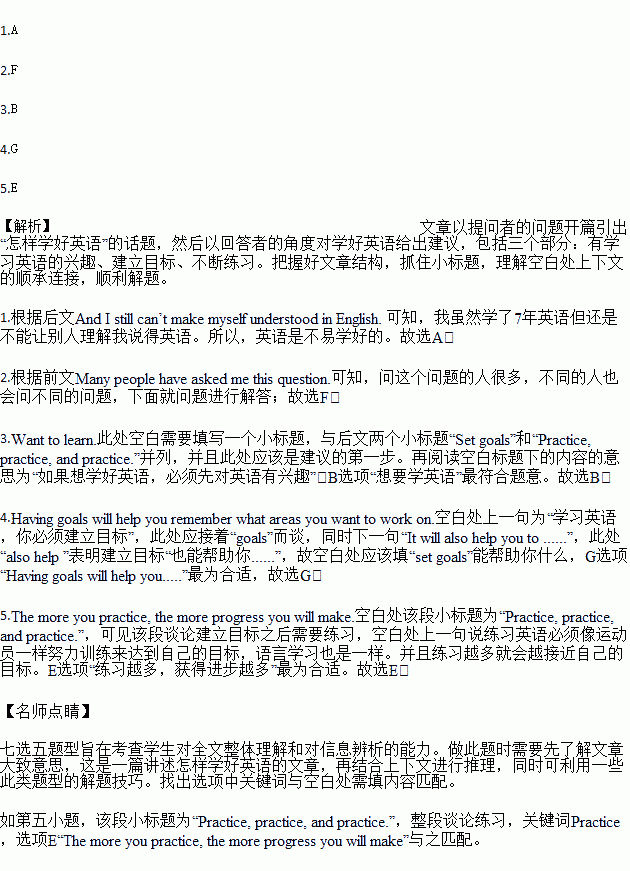题目内容
Question: I have been learning English for about 7 years. 1. And I still can't make myself understood in English. However, I love learning English. How can I learn English well? Please help me.
Answer: Many people have asked me this question. 2. Here I will give you several tips for learning English.
● 3.
First of all, you must want to learn. If you are not interested in learning English, no class will help you and no book will help you. So you have to be honest with yourself. Ask yourself, “Do I really want to learn English?” If you can't answer “yes” to this question, it is better for you to set English aside until you're ready and willing to learn.
● Set goals (目标).
To learn English well, you must set some goals. 4. It will also help you to see your progress. Ask yourself, “What are my goals? What areas would I like to improve?” Think about what your goals are, and review once in a while to see that you are making progress toward your goals.
● Practice, practice, and practice.
After you have set your goals, you have a better idea of what you need to practice. Just like the athlete (运动员)whose goal is the Olympics must train(训练)daily, you as a language learner must practice language every day to make progress toward your goal. 5.
A. I think it is not easy to learn it well.
B.Want to learn.
C. Reading is a very good way to learn new words.
D. Make friends with some Americans online.
E. The more you practice, the more progress you will make.
F. The answers are as different as the people asking the question.
G. Having goals will help you remember what areas you want to work on.


 since the first settlers arrive. It was a national ball what was liked by many Americans at that time. Although baseball possibly developed from an English game, it is now thought of like an American sport. From the Little League to the Major League, player of all skill levels enjoy testing their power on the “ Field of Dreams”. Famous players, exciting music but the standard stadium food of hot dogs, popcorns and peanuts are popularly among Americans. In a fact, Americans make go to the baseball game a favorite summer outing for many Americans nowadays.
since the first settlers arrive. It was a national ball what was liked by many Americans at that time. Although baseball possibly developed from an English game, it is now thought of like an American sport. From the Little League to the Major League, player of all skill levels enjoy testing their power on the “ Field of Dreams”. Famous players, exciting music but the standard stadium food of hot dogs, popcorns and peanuts are popularly among Americans. In a fact, Americans make go to the baseball game a favorite summer outing for many Americans nowadays.